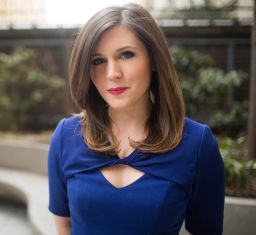Editor’s Note: Jill Filipovic is a journalist based in New York and author of the book “OK Boomer, Let’s Talk: How My Generation Got Left Behind.” Follow her on Twitter. The opinions expressed in this commentary are solely her own. View more opinion on CNN.
On Monday night, Politico published a leaked draft opinion from the Supreme Court on a crucial abortion case, which, if formally adopted, would overturn Roe v. Wade. It is a devastating document to read, indicating a slim majority of the justices – four of the five appointed by presidents who lost the popular vote – are set to end the era of legal abortion in the United States.
The final opinion is still to come, and of course justices can change their votes and their phrasing before opinions are formally released. But even though many Supreme Court observers, myself included, predicted this would be the outcome, it is still a crushing blow to read in black and white. And it is devastating to consider the consequences yet to come.

For American women, it throws the future into question: What will it mean to live in a country that has made it clear it doesn’t see you as an equal citizen – that doesn’t recognize the most basic, intimate right to decide what happens inside your own body?
For one, it likely means more women will die of pregnancy-related causes. One researcher estimates an abortion ban means maternal mortality rates could tick up by as much as 21%.
It likely means women imprisoned for suspected abortions. It almost surely means women killed or injured from attempts at self-induced abortions. And an end to legal abortion means, obviously, more women forced to carry pregnancies they did not want and some of those women having to raise children they cannot afford or were not prepared to have.
It affects the individuals forced to continue pregnancies, endure childbirth and either raise children or make the often difficult (and, since Roe, increasingly rare) choice to place them up for adoption. But restrictive abortion laws affect all of us, pregnant or not. They feed into a culture of misogyny, one in which all women are denied the most basic rights of bodily autonomy and self-determination, and are treated primarily as vessels for childbearing, not autonomous human beings.
More forced childbearing, particularly in a country with so little help for mothers – no federally-mandated paid parental leave, no universal child care, insufficient protections against workplace discrimination – means many, many women forced out of the paid workforce, giving up their dreams and poorer for the rest of their lives. And it impacts everyone: Their children and families, but also the population more broadly.
A country in which more women are forced out of the public, political and economic spheres is a country in which men dominate those spheres, to the detriment of all women and equality more broadly. It is a country that loses out, where untold numbers of women simply never reach their potential: Never create their art, never invent the new technology, never make the new discovery, never write their book or run for office or claw their way out of poverty or leave an abusive man.
A country that forces women into pregnancy and off of their self-determined paths is a country that is poorer by all measures.
And the conservative movement won’t stop there.
Roe is not a case that stands alone. The legal theory that led to Roe v. Wade was used earlier in Griswold v. Connecticut, which legalized contraception for married couples, and was quickly followed by cases that opened up legal contraception access to all American adults.
Already, anti-abortion groups and activists have made clear they believe many forms of contraception, from the IUD to the birth control pill, are tantamount to abortion. Many large networks of anti-abortion “crisis pregnancy centers,” which largely exist to talk women out of abortion and virtually none of which even provide basic prenatal care, formally bar their centers from giving women contraception. Abortion opponents have taken cases all the way to the Supreme Court (and won) on their false claims that the IUD is a form of abortion.
Make no mistake: These groups are coming for contraception, too.
And it seems unlikely to end there. The line of cases following the Griswold contraception case and Roe includes cases that ended criminal penalties for consensual same-sex intercourse and legalized same-sex marriage. The draft opinion to overturn Roe, penned by Justice Samuel Alito, hints at how this conservative court will address recent Supreme Court decisions on LGBTQ rights, dismissing their “appeals to a broader right to autonomy.”
It was never just about abortion. It’s about the broader and much more radical cultural shift the reactionary American right wants: A return to traditional gender roles, with men occupying the public, economic and political spheres; women dependent on men and at home with children; and LGBTQ people pushed back into the shadows.
Abortion rights advocates have long been working to make sure women can have abortions even in places where access is limited or abortion is largely outlawed. An end to Roe will mean their work will scale up. But some women – perhaps most women – will not be able to get the safe abortions they need. And in a country where abortion is outlawed, all women ending pregnancies are treated like criminals and told they should feel ashamed.
Get our free weekly newsletter
This Supreme Court opinion is only a draft, and it is not yet binding. According to Politico, the draft – authored by Justice Samuel Alito – was circulated in early February.
Abortion remains legal in most of the United States. But it seems that window is closing.
Now is the time to speak out and show those in power just how massive an earthquake they will cause if abortion is outlawed. And if you’ve been passive on this issue perhaps because you don’t think you’ll ever need an abortion, now is the time to pay attention and get in the fight.
Because when one in four women has an abortion in her lifetime, someone you love will need one. And because we are all worse off in a country that does not allow women to chart our own paths, control our own bodies, and walk toward our best futures.






